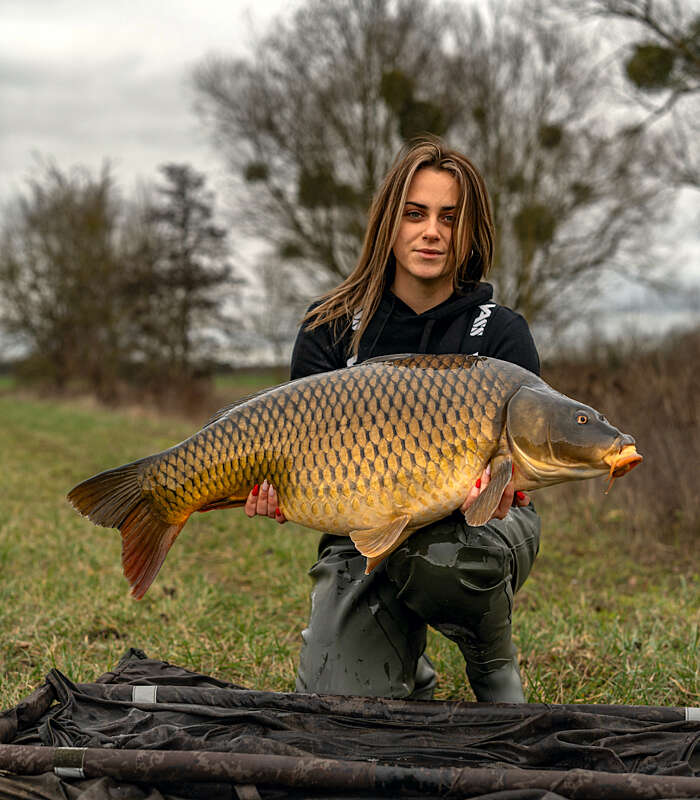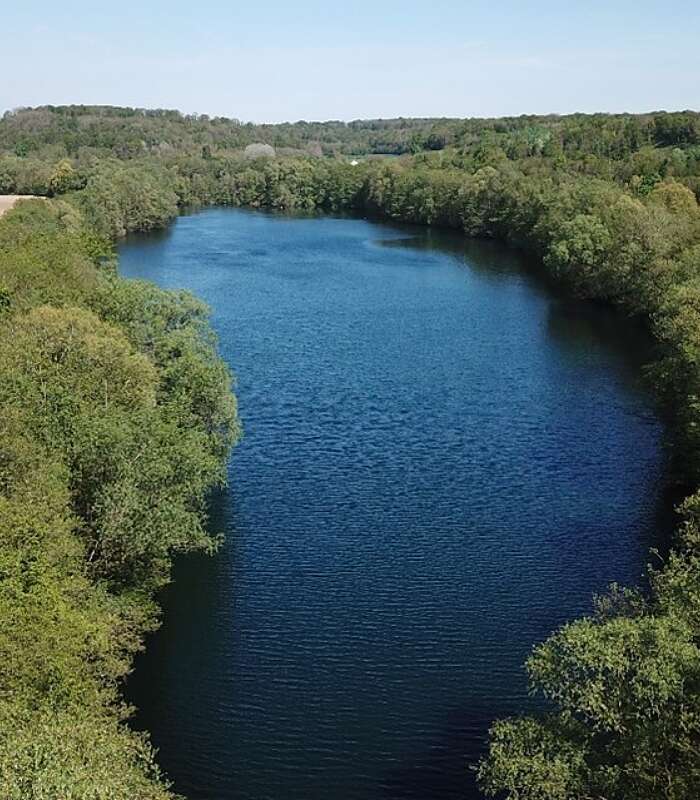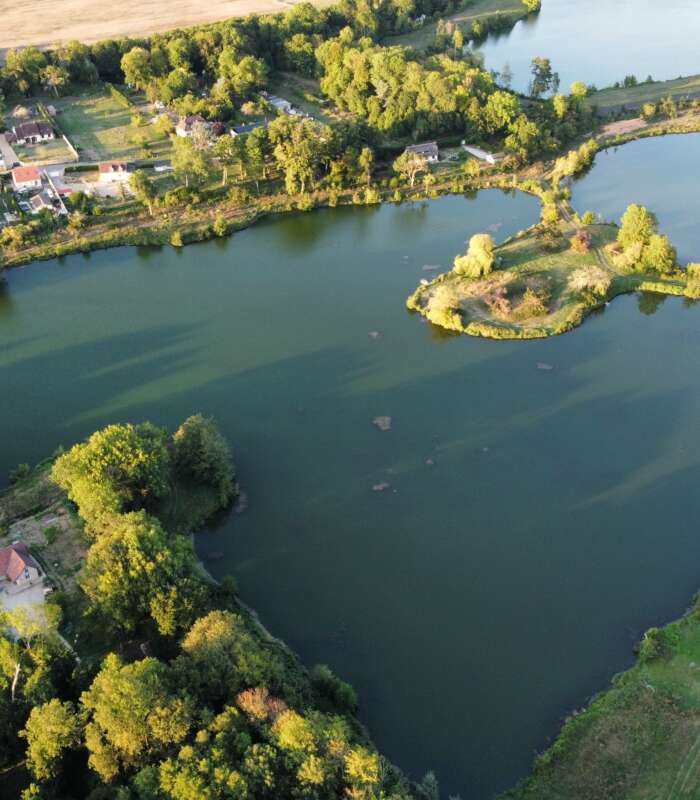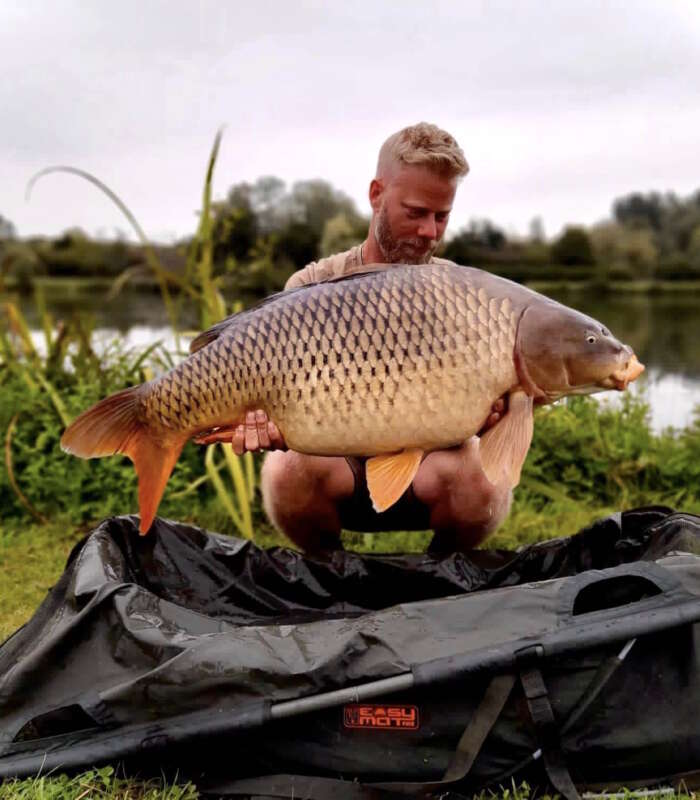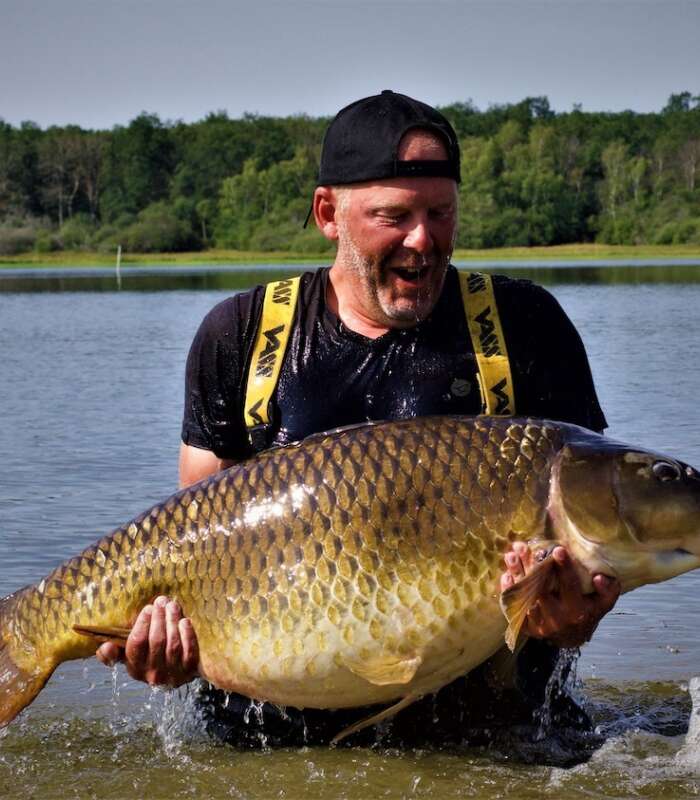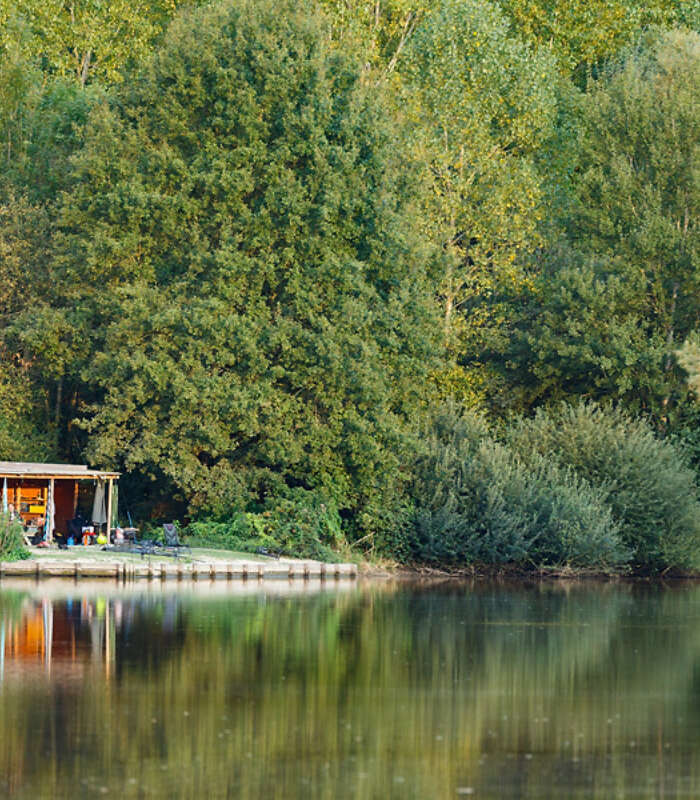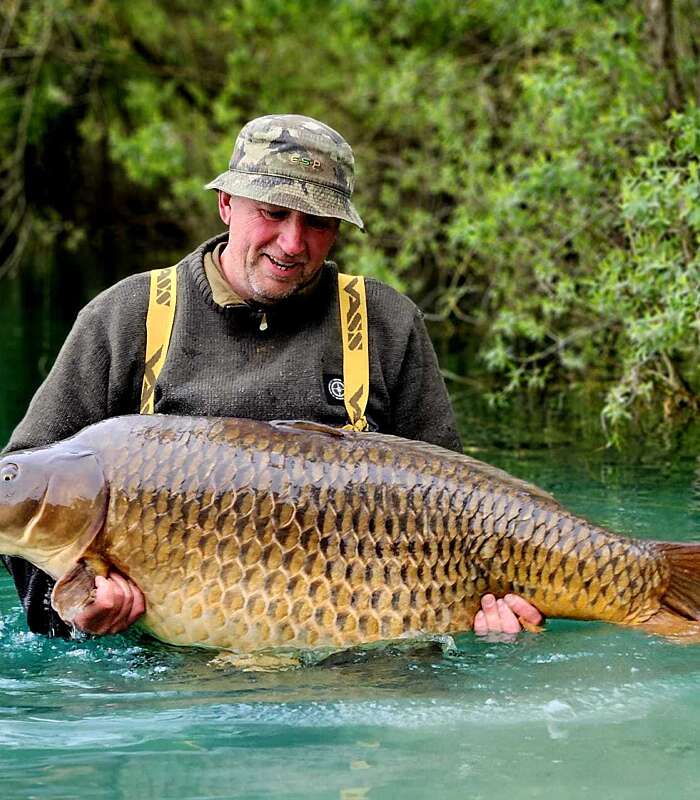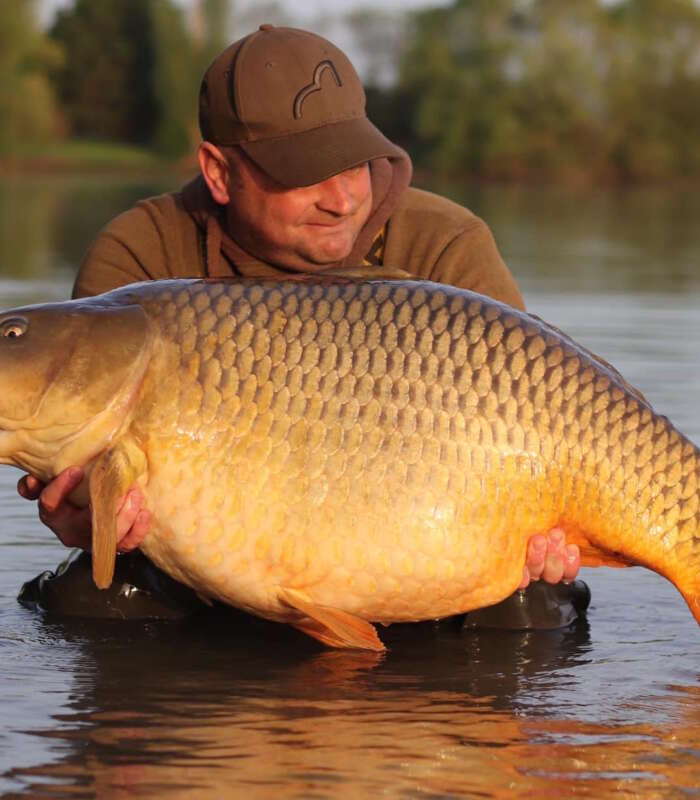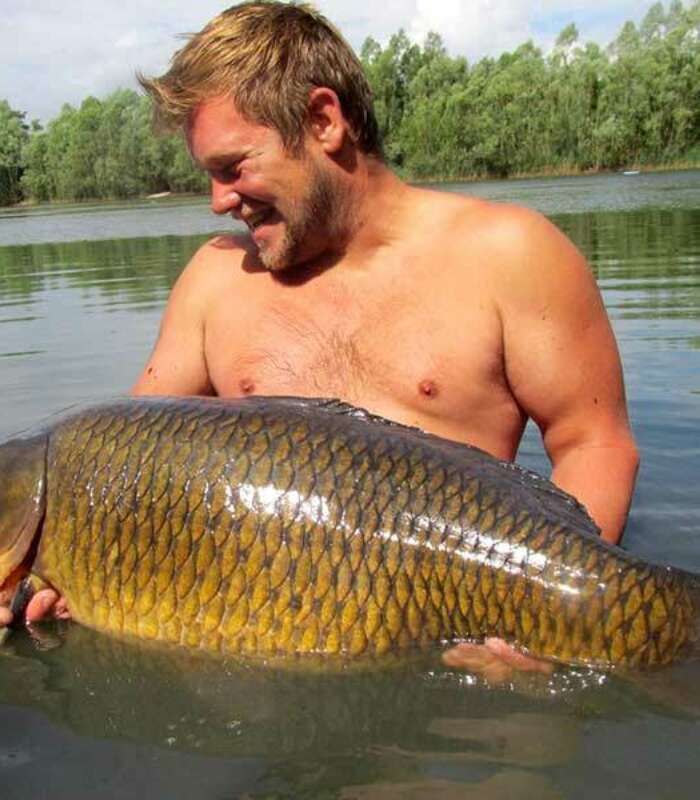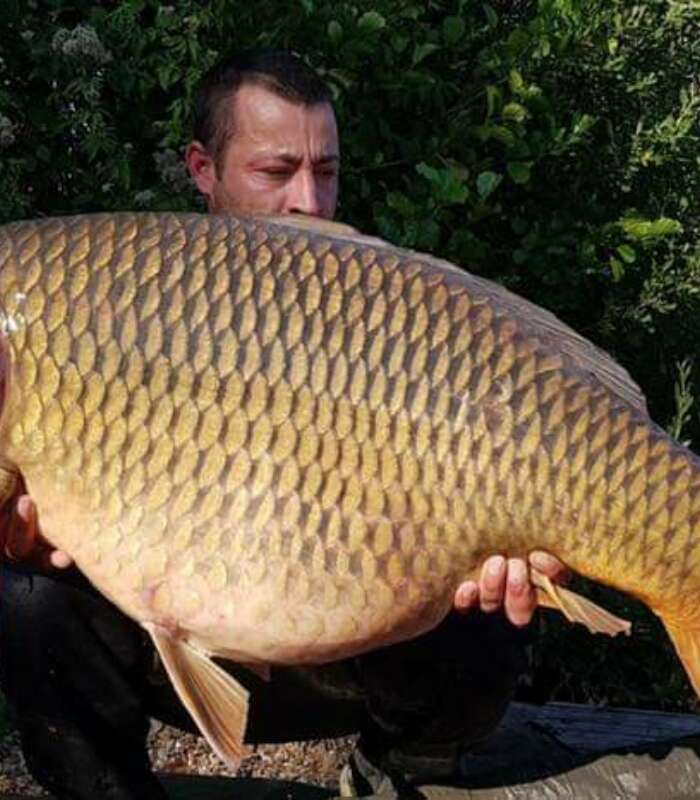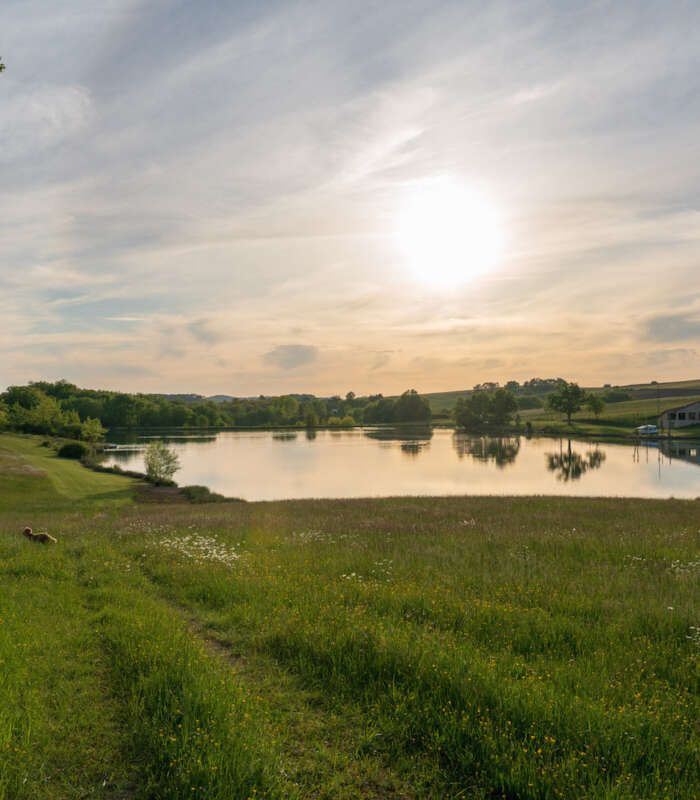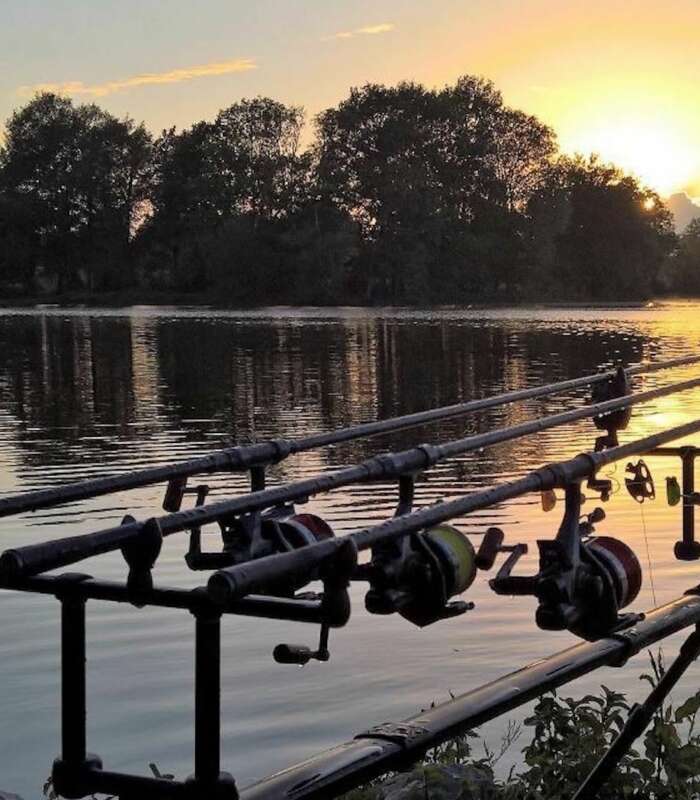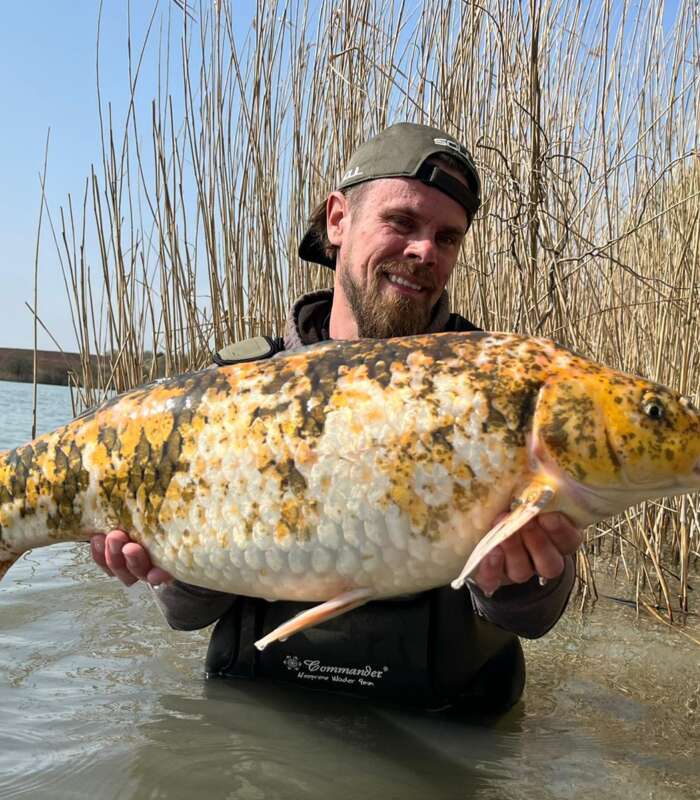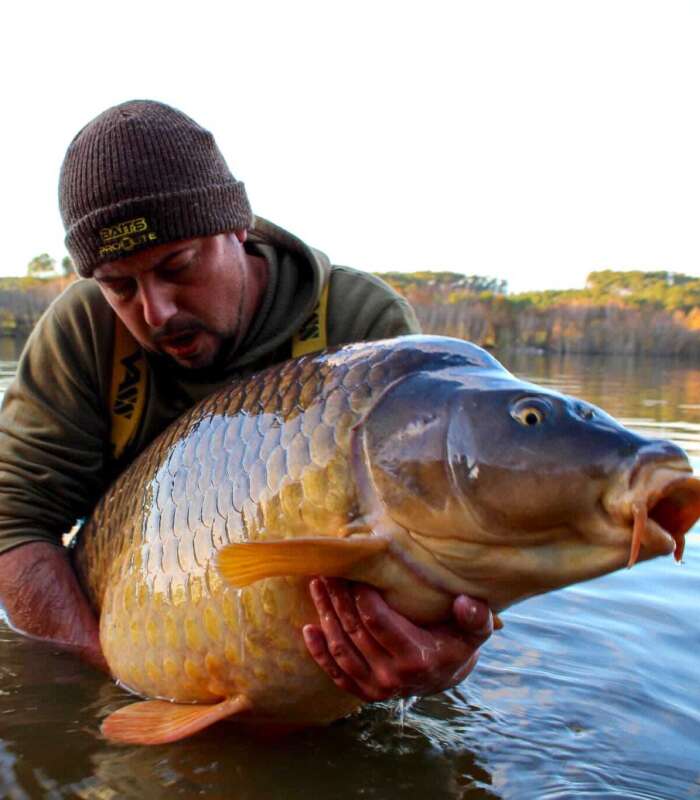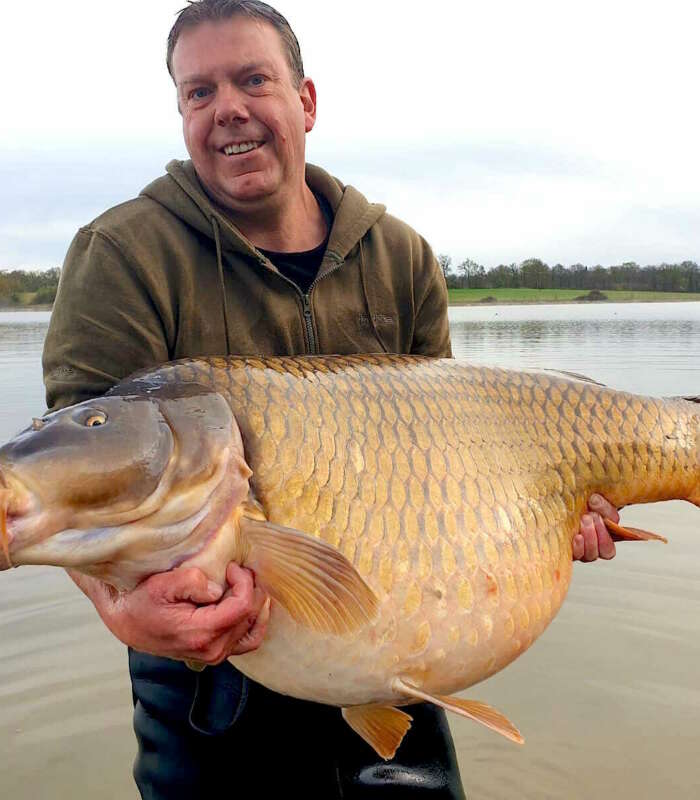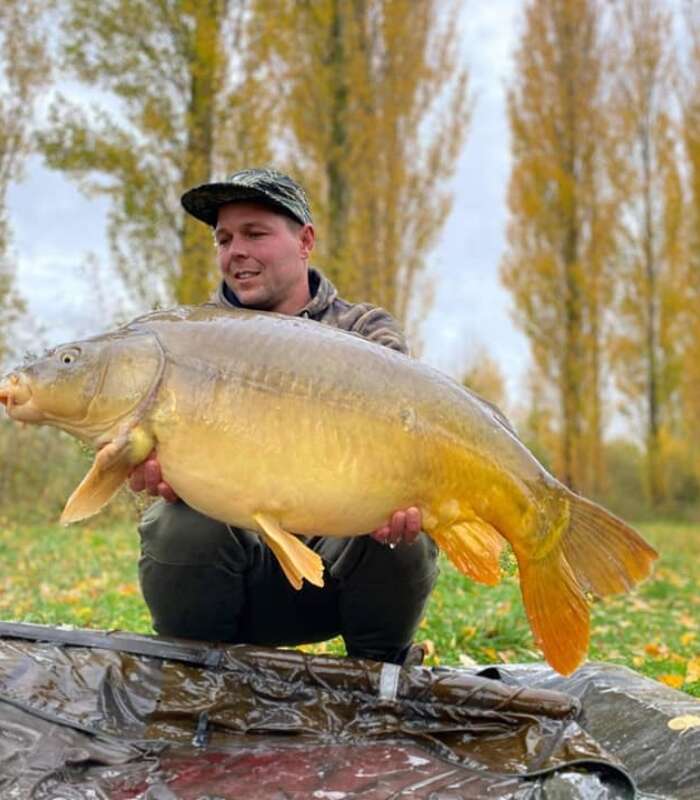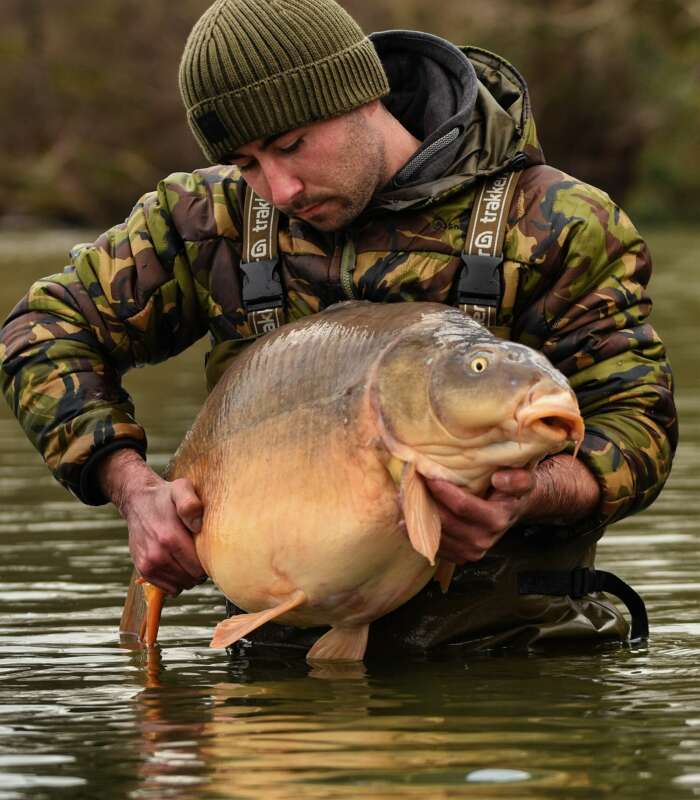Carp fishing in France is a very good option and this is due to the sheer amount of places available to fish. There are said to be more lakes and rivers in France, with good spots for fishing, than in the rest of Europe combined. And it is for this reason there has been an influx of angling holidaymakers who take full advantage of the great spots.
In past decades, when France underwent large-scale urban development, for the building of infrastructure, roads, railways and homes, the land was excavated for the search of materials. It was after the gravel or sand extraction took place that many of the lakes, which can be seen today, were inadvertently created.
As the lakes began to form, France made good use of them - creating ‘stew’ ponds by filling them with fish, which would provide food for the villages. Traditionally, this was done by monks in the natural lakes or in lakes that were created by damming rivers and streams. The most common fish in this situation was the carp and still today, the carp is very often found in many parts of Europe as it is farmed as a food supply.
However, it wasn't until the 1990s that carp fishing in France became very popular among anglers. The owners of these lakes began to foresee good commercial value in the industry and as such, proceeded to accommodate their vision by providing for the growing demand of fish.
The industry has grown (quite literally) from holes in the ground and become a substantial industry within the last 20-25 years and in particular, has seen growth within the last 10-15 years. In the 1990's, visitors to these lakes were very often by themselves with very few facilities available. More often then not, the facilities were very basic with just toilets and washrooms and certainly not anything that would be deemed ‘family-friendly’. Of course, the hardened angler could visit the vast waters of Chantecoq, Saint-Cassien or the lakes in Forêt d’Orient, but for the majority, it would mean taking a trip to a holiday venue with lots of driving and few accommodations. It was here that the term ‘drive and survive’ was coined. Today’s visitors to these areas have it very differently; there are now countless options available and no matter what type of fishing-holiday you require, it will be available to you somewhere!
Carp Fishing Holidays in France
You can do a lot of traveling, to areas unknown or popular, hoping to find big carp. In the past, finding a carp that weighed 40-50lb could mean taking marathon journeys to secret venues that may have only been rumored. Today, fish of this weight are commonly found across all areas of France - something uncommon in the rest of Europe. So now, everyone can have the chance to catch a fish of this size, whilst enjoying a cold drink and a good meal by just searching online or picking up the phone. Seeking for a destination for carp fishing in France is that easy!
Discover the joy of carp fishing holidays in France, where tranquil drives through the countryside complement your adventure. Fishing in France is not only a relaxing activity, but also it's a lifestyle. Unlike the bustling roads of major European cities, France offers serene motorway experiences, especially beneficial for those journeying to their fishing destinations. With excellent signage and navigation aids, the journey itself becomes part of the excitement, though adherence to local driving laws is essential for a seamless experience.
When planning your fishing getaway, remember the essentials for a trouble-free journey:
Vehicle Preparedness: Carry a self-test breathalyser as mandated by French law, alongside spare bulbs, fuses, a red hazard warning triangle, high-visibility clothing for all occupants, and headlight deflectors for right-hand drive cars. Radar detectors are strictly prohibited.
Documentation: Ensure you have your driving licence, vehicle registration (Carte Grise), valid ID (e.g., passport), and insurance coverage for France.
Fishing Licences: For public waters, a Carte de Pêche is required, available online. Private commercial lakes, like those booked through our services, do not require a licence, offering hassle-free fishing.
On the Road: The motorways and main roads are well-maintained and relatively quiet, providing swift travel despite toll costs. Look out for "Aires" for rest and refreshment, and in case of vehicle trouble, roadside assistance is available for a fixed fee.
Essential Gear for Carp Fishing in France
While the quality of your gear can enhance the fishing experience, success primarily hinges on understanding carp behavior and habitat. Essential equipment for beginners includes:
- A fishing rod with a length of 3.6m to 3.9m, including a sufficient number of rings and a power range between 2 ½ lbs and 3 lbs can meet the fishing conditions.
- A balanced reel with a reliable and preferably rear brake system.
- A robust, sizeable landing net.
- Appropriately sized hooks and rigs.
- A rod-pod and electronic bait alarm for convenience during fishing sessions.
Choosing a fishing area for Carp in France
Factors come into play that can determine the quality of your catch and so your choice should take these into account. These factors are:
• Season: Spring, summer and fall are considered by most of the fishermen as the most favorable seasons for the practice of fishing for carp in France. Departures are generally more numerous and more common: it's time to get out the rods and spend more time at the water's edge.
• The climate of fishing for carp in France is an important factor. It is generally advisable to study the weather for the future sessions in order to prepare the material in the best conditions.
• The evaluation of the water temperature is also important because it will allow you to estimate the carp’s feeding habits. This type of fish has a digestion time that depends numerous factors such as temperature and the oxygenation rate of the water.
• Knowledge of the regulations in the region or department: The regulation of the carp fishing in France in 2015 allows you four (4) lines per angler. Only plant-based baits are allowed. For example, carp fishing in France allowed 24 hours/day in 2015 is not allowed in all locations.
Carp Fishing Holiday in France with Your Family
Here are essential tips for a harmonious family fishing getaway:
- Proximity is Key: Choose a venue close to your point of entry into France to keep travel with children manageable. Some locations, like High Mill Lake, offer convenient airport transfers, enhancing your travel experience.
- Comfortable Accommodation: Gone are the days of "roughing it" on fishing trips. Opt for venues that provide comfortable lodging to ensure your family's contentment throughout your stay.
- Entertainment for All: Investigate local attractions and activities to keep the entire family engaged. Venues near towns with recreational options offer diverse activities, ensuring something for everyone.
- Balancing Fishing with Family Time: While fishing might be your passion, remember to allocate time for family activities. Fishing at dawn or dusk allows you to enjoy quality daytime outings with your family.
- Flexibility and Fun: Approach your fishing holiday with a flexible mindset, prioritising family enjoyment alongside angling. Strategic planning, such as baiting during the day and taking family excursions, ensures everyone has a memorable holiday.
7 Top Big Fish Carp Lakes in France
- Domaine de Goncourt: Features several large fish lakes with carp grown to over 70 lb, stocked 18-25 years ago, and additional stockings over the last decade. Big fish venues at the complex are Charlie Lake, JB Lake, La Botte and Robin Lake.
- Lac de Villedon: Spans 100 acres and stretches over 1.4 miles (2km), housing over 1,200 carp averaging 33lb, with many in the 60s and 70s.
- Lac de Cavagnac: Boasts carp up to 85lb among its 1,000 carp, with over half weighing over 40lb. The lake record stands at 85lb 2oz.
- Lake Evaro: Part of the Centre de Pêche en Champagne, it has around 200 carp, including sizes in the 30's, 40's, a few 50's and 60's, and a top weight of 35Kg or 77lb.
- Etang du Vaulaurent: Established about 250 years ago, it recently recorded a catch of 71.7lb.
- Jonchery: Stocked with approximately 450 carp, with weights up to 62lb.
- Etang 5: A 101-acre venue with 8 swims, noted for its large carp, including one up to 86lb.
Best Carp Lakes in France
When defining the "best" lakes for Carp fishing, several criteria come into play, such as the size of the lake, the stock and size of Carp, the level of challenge presented to the angler, and the unique attributes of each lake that contribute to a memorable fishing experience. From prestigious venues hosting record-breaking fish to vast expanses of water presenting the ultimate challenge, France offers a variety of destinations catering to all levels of Carp fishing expertise.
Below is a summary of some of the most renowned Carp lakes in France, each with its own set of characteristics that make it a top choice for anglers:
- Rainbow Lake: Esteemed for its large Carp, Rainbow Lake offers a challenge for the experienced angler. Advance booking and boat use are essential here, with the lake's exclusivity and significant Carp sizes making it a prized fishing destination.
- Lac Du Der-Chantecoq: Renowned for its vast size and substantial Carp, this lake in the Champagne region transforms from three separate bodies of water in summer to a vast single lake, providing unique and challenging fishing experiences.
- Lac d’Orient: Over 5500 acres in size, Lac d'Orient is for the seasoned angler seeking the ultimate challenge. The vastness and elusive Carp make it a bucket-list destination for serious Carp fishing enthusiasts.
- Lac de Saint-Cassien: Famous for its historical catches and as a venue for top anglers, Lac de Saint-Cassien offers day-only fishing across its 1200 acres. A 76lb Carp catch in 1986 cemented its legendary status, with guided tours now making it accessible to all.
Carp Holidays With Accommodation
Booking Carp fishing holidays with accommodation in France offers the convenience of renting essential bulky gear like rods, reels, and nets, making travel easier for groups or families in a single car. This option is ideal for those new to Carp fishing or for anyone seeking a more comfortable experience with added amenities such as shower and toilet facilities. It minimises the need for extensive preparation, allowing for a more enjoyable holiday focused on fishing and relaxation.
Our Bests Carp Fishing Accommodation in France:
Etang Sauvage: Lake exclusive with holiday home
Etang de Brigueuil Holiday Home at the swim
Domaine de Bouxier - Holiday Home
Prices for Carp Fishing in France
We offer individual swims, lake exclusive bookings and also venues with accommodation.
Individual swims can be booked for one, two or more anglers (depending on the swim size) and prices range between 250€ and 420€ per angler. The average price for a swim though is around 300€. Non fishing guests generally pay around 10€ per night.
The price for a lake exclusive booking depends on many factors like the lake size, popularity, carp stock, etc. If you want to rent a lake privately for your group you'll pay between 1500€ and 2500€ per week for a venue of around 3 to 7 hectares. Larger lakes charge 3000€ per week or more.
For those looking for more comfort, renting a car lake with accommodation can cost between 900€ and 1800€ per week. Obviously, the prices vary according to the surface of the venue, the fish stocks, the level of luxury of the accommodation (hut, safari tent vs luxury villa), etc.
